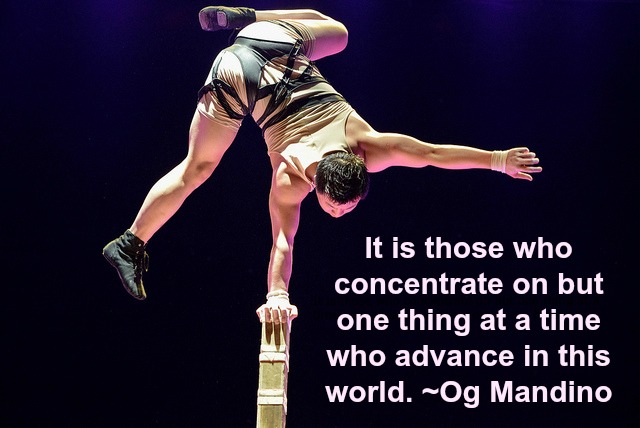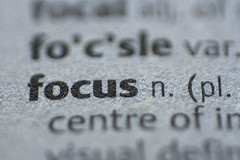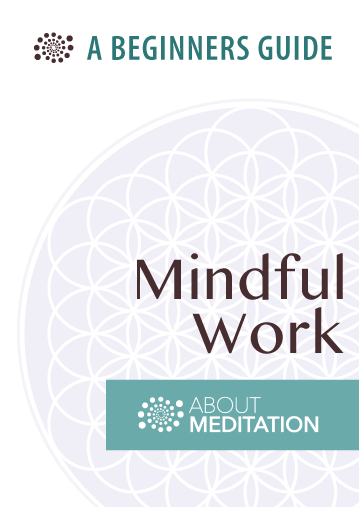
Can mindfulness improve your performance at work? Many businesses are embracing mindfulness and meditation training to help their employees. But what’s the actual benefit of mindfulness at work? And can it really help you?
Work is an area where many of us experience our greatest sense of personal development. We’re rewarded when we perform well and motivated to keep honing our game. For high-performing individuals, it’s natural to want to do the best job possible.
So can mindfulness help? According to a lot of people, yes it can. But maybe not in the way that you thought it could. Rather than placing you ahead of your co-workers, practicing mindfulness is the kind of training that can act like a force multiplier, benefiting not just you but your entire work culture.
There’s a reason why companies like Adobe, Facebook, Google, and Hubspot have all started their own meditation groups. Last year I even got inquiries from the folks at Rolls Royce asking how to set up a meditation space at work.
In a recent article from Upstart, Kim Nicols, a Silicon Valley meditation teacher wrote, “people who meditate seem to have an edge over those who don’t. More companies—like Google, General Mills, and Genentech—are offering mindfulness programs to their employees. Start-ups bring in people like me to lead 30-minute meditation classes on-site. Even pro sports teams like the Seattle Seahawks and San Francisco Giants make it a part of their training.”
Why Are Companies Embracing Mindfulness?
 So what are some of the benefits of embracing mindfulness at work? Before we get into the science, let’s hear from a few folks who are actually implementing mindfulness in the workplace.
So what are some of the benefits of embracing mindfulness at work? Before we get into the science, let’s hear from a few folks who are actually implementing mindfulness in the workplace.
A good friend of mine is a MIT trained PHD and Chief Technology Officer (CTO) at a successful tech firm on the East Coast. Like a lot of tech firms, his business is expanding rapidly and so are his responsibilities. When I asked him how his meditation practice impacts his performance as CTO in a rapidly changing environment he said, “Through my meditation practice, I cultivate both an awareness of what needs to be done and the clarity to respond with effective action.”
Kim Nicols asked some of her business clients why they meditate. “One client meditates for four minutes before every important sales call, because it helps him feel centered, grounded, relaxed and confident.” And another one of her clients “schedules her most important meetings for the afternoon following our on-site meditation class. When I asked her why, she said, ‘After meditation, I feel like I can handle anything.'”
My good friend Steve is a senior consultant at the marketing software company HubSpot in Cambridge, MA. He’s a long-time meditator and organizes a volunteer meditation group for HubSpot employees. When I asked him why he started the Hubspot meditation group, he said he does it so that everyone can feel what it’s like to have no problems. “When you start your day with 20 minutes of stillness, focus, and relaxation, you realize that whatever you may have been worried about that day is small potatoes. In business we’re often dealing with problems of one kind or another; meditation helps reset the way we look at them and spot new solutions.”
Of course some mindfulness advocates and practitioners are critical of this trend of mindfulness in the workplace, dubbing it the McMindfulness movement. And it’s worth noting their objections. One New Yorker article explores this in depth, and I resonate with their conclusions when they write that, “On the spectrum of misappropriation, using self-advancement as a lure seems forgivable enough if it leads people to try a technique as subtly transformative as mindfulness. (Indeed, if personal betterment is America’s religion, such an approach might be seen as syncretic.) What can be lost by broadening access to a philosophy of liberation, even if a majority of people conflate it with the more vulgar priorities of our culture?”
Your Attention Is A Trainable Resource
 Ok. But can mindfulness and meditation help elevate your performance at work? What does the science tell us? Well, it turns out that mindfulness really is a powerful tool for improving your performance at work. But how exactly?
Ok. But can mindfulness and meditation help elevate your performance at work? What does the science tell us? Well, it turns out that mindfulness really is a powerful tool for improving your performance at work. But how exactly?
For one thing, meditation taps into the most precious resource in any organization: attention. And if you can learn to harness and improve the quality of your own attention, you and your co-workers will benefit. And if you can create a work culture that values this resource, you’ll be in another league.
Just like you go to the gym to build your muscles, meditation builds the muscles of your attention. Here’s how a recent study out of the University of Washington put it.
“The present study builds on a growing body of scientific literature suggesting that human attention is a trainable resource and that certain forms of meditation constitute a viable form of such training. The evidence presented here suggests that meditation training may effect positive changes in the multitasking practices of computer-based knowledge workers, and thus offers encouragement to those who would design workplace or technology interventions to take advantage of this possibility.”
So let’s explore this further. Here are 7 ways that mindfulness will help you improve your performance at work.
1. Mindfulness Is Contagious
Mindfulness is the type of skill that can ripple out into the culture of your organization through your mere presence. Have you ever had the experience when you’re running around like a mad man, pushing to get everything finished, and you meet someone who’s grounded, present, and calm?
Those are powerful moments. Because, if you’re like me, they make you pause for a moment and reflect on your own manic pace. A little bit of that person’s calm demeanor rubs off. In those moments I encounter someone who’s exuding mindful presence, I realize I’ll be more effective if I slow down and focus on one thing at a time.
Author Daniel Goleman illustrates this point in a recent article. Just like stress is contagious and tends to shut down your brain’s executive functions, like paying attention, comprehending, and learning, so too is the opposite true. Calm, centered, and mindful leadership helps to open your mind and that infuses the culture around you, especially if you are someone in a position of authority.
2. Improve Your Focus
Recent studies have show that mindfulness affects the part of the brain responsible for self-regulation. It’s called the Anterior Cingulate Cortex (ACC). This enhanced capacity for self-regulation can help you avoid time and productivity bandits like email and web browsing.
have show that mindfulness affects the part of the brain responsible for self-regulation. It’s called the Anterior Cingulate Cortex (ACC). This enhanced capacity for self-regulation can help you avoid time and productivity bandits like email and web browsing.
To further illustrate this point, that same study from the University of Washington tested the effect of mindfulness-based meditation on the multitasking behavior of three groups of knowledge workers. The results were conclusive.
“We found that only those trained in meditation stayed on tasks longer and made fewer task switches, as well as reporting less negative emotion after task performance, as compared with the other two groups. In addition, both the meditation and the relaxation groups showed improved memory for the tasks they performed.”
3. Embrace Criticism
It’s not often you see someone accept criticism with poise or grace, much less real interest. Negative feedback is one of the least pleasant experiences we can have at work. And research has shown that poorly delivered and poorly received criticism can kill productivity.
We recently shared 5 ways that mindfulness can help you accept criticism. I’m not saying it’s easy, because criticism triggers ancient reptilian fears filling us with fight or flight hormones like cortisol and adrenaline which shut down major parts of our brains.
But with a simple 5-step mindfulness protocol, you can quickly ground yourself and respond with presence. That’s a big deal. And it’s a skill many leaders need to cultivate. By mindfully breathing, slowing down, listening, observing your response, and considering the information, you can overcome that fight or flight response and keep moving.
4. Become A Better Listener
 Have you ever noticed that we’re not always great at listening to each other? Often someone is talking and you’ll have another dialogue going on in your head. At work, you can’t really afford that. Your success and effectiveness depends on attending to the moment and the flow of information, whether you’re on a sales call, in a marketing meeting, or discussing something with a co-worker.
Have you ever noticed that we’re not always great at listening to each other? Often someone is talking and you’ll have another dialogue going on in your head. At work, you can’t really afford that. Your success and effectiveness depends on attending to the moment and the flow of information, whether you’re on a sales call, in a marketing meeting, or discussing something with a co-worker.
Think of mindfulness as a filter for your mind. With mindfulness, you’re straining out all the bad bits which aren’t helping you in this moment. Mindfulness is about doing only one thing right now. It doesn’t matter what that thing is. What matters is that you do it 100%. It’s the purified version of your attention.
So when you’re listening to someone, mindfulness can help you meet that person fully and really absorb their meaning and intent. Maybe you’ll hear an important tone in someone’s voice, a cue for a response, or maybe their idea triggers the next big breakthrough on your joint project. At the least, it will make an impression on your coworker, conscious or unconscious, and it will deepen your relationship.
5. Improve Your Relationship Skills
Another recent study from Harvard Medical School shows that mindfulness meditation increases the grey matter in your hippocampus. This is the region of the brain that is associated with self-awareness, compassion, and introspection.
We all need to be cultivating these qualities in ourselves for work and for life. They are foundational to building productive and creative friendships. There’s no doubt, mindful presence is all about being attentive to the world around you—inner and outer. And if you are cultivating mindfulness as a regular habit, you’re going to be tuned in and noticing much more.
When you leverage that enhanced awareness, you’re going to be a greater asset to your team. And you’re probably going to be a kinder more compassionate person to be around. As the old proverb says, “If you want to go quick, go alone. If you want to go far, go together.”
6. Become A Better Leader
 According to the Harvard Business Review, mindfulness is no longer a luxury for business leaders. It’s a ‘must-have.’ Based on the latest neuroscience research exploring the impact of meditation on the brain, the authors had this to say.
According to the Harvard Business Review, mindfulness is no longer a luxury for business leaders. It’s a ‘must-have.’ Based on the latest neuroscience research exploring the impact of meditation on the brain, the authors had this to say.
“Neuroscientists have shown that practicing mindfulness affects brain areas related to perception, body awareness, pain tolerance, emotion regulation, introspection, complex thinking, and sense of self. While more research is needed to document these changes over time and to understand underlying mechanisms, the converging evidence is compelling.”
“Mindfulness should no longer be considered a “nice-to-have” for executives. It’s a “must-have”: a way to keep our brains healthy, to support self-regulation and effective decision-making capabilities, and to protect ourselves from toxic stress. It can be integrated into one’s religious or spiritual life, or practiced as a form of secular mental training. When we take a seat, take a breath, and commit to being mindful, particularly when we gather with others who are doing the same, we have the potential to be changed.”
7. Let Go Of Stress
 Stress is an addiction. Despite the widespread evidence that chronic and sustained levels of stress can shrink your brain, damage your cells, and reek havoc on your emotional, psychological, and physical health, it’s still an issue. Work is the primary source of stress for many of us. And here’s the thing—stress diminishes your performance over time.
Stress is an addiction. Despite the widespread evidence that chronic and sustained levels of stress can shrink your brain, damage your cells, and reek havoc on your emotional, psychological, and physical health, it’s still an issue. Work is the primary source of stress for many of us. And here’s the thing—stress diminishes your performance over time.
It’s also true that many of us don’t have the inner tools or training to deal with it. Mindfulness can help in a big way. With some very simple techniques—like closing your eyes and counting your breath—you can not only stop the negative effects of stress on your body and brain, you can reverse them.
This is why, according to CBS News, “America’s businesses are becoming more interested in mindfulness as a tool to help stressed-out employees. Some companies are offering free training programs in mindfulness, including a number of prominent Fortune 500 companies: Raytheon, Procter & Gamble, Monsanto, General Mills, Comcast.”
Putting Mindfulness at Work Into Practice
So what about you? Are you curious? We just covered 7 ways that mindfulness can improve your performance at work. If you’re compelled to follow through and start your own mindfulness habit, I encourage you to start simple.
Take a few 1-minute mindfulness breaks at your desk each day. Just stop, close your eyes, relax, and take a few deep breaths. That’s a great place to start and you can build from there. And you know what? You may just see the effects sooner than you think.
Looking for a quick way to learn meditation? Try our free How To Meditate mini course here.
Photo Credit-Flickr CC: Michael Davis-Burchat; ihtatho; Stefanos Papachristou; Melvin Gaal; Astrid Westvang; Steve Wilson




Dear Mr. Dix,
Great article! I’m a graduate student in Human Behavior and Organizational Psychology and I have a sincere interest in mindfulness meditation and workplace productivity. I hope to read more articles by you in the near future. May you be filled with equanimity.
Sincerely,
Ms. Hope MAIOP
Dear Roxanne,
Thank you so much for your feedback and I’m glad to know of your interest in this topic. I will be sure to revisit it soon–there’s a lot to say on the topic–and very good luck in your studies! Warmly, Morgan